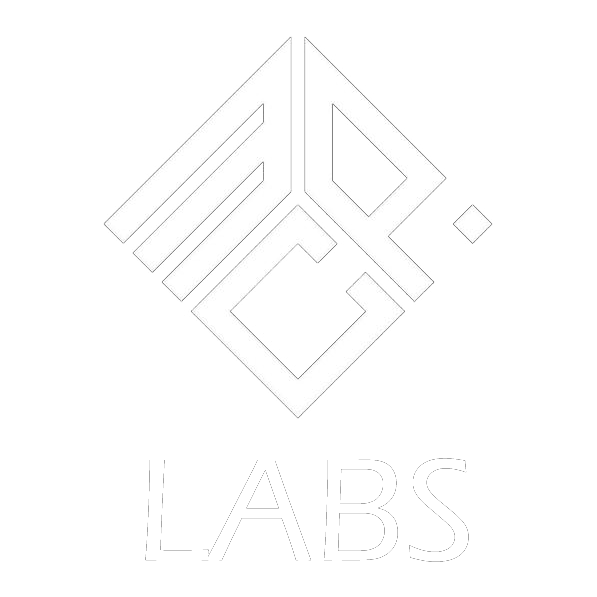AI in Recruitment: Empowering Talent Acquisition

Revolutionizing Recruitment: How AI is Shaping Talent Acquisition
Estimated reading time: 5 minutes
- AI is transforming recruitment practices for smarter hiring decisions.
- n8n can automate recruitment workflows, enhancing efficiency.
- AI enhances candidate matching and reduces biases in hiring.
- Focus on candidate experience using AI-driven tools.
- Organizations must monitor AI tools for fairness and effectiveness.
Table of Contents
- The AI Revolution in Recruitment
- The Role of n8n Workflows in Recruitment Automation
- Key Advantages of AI in Recruitment
- Practical Takeaways for HR Professionals
- Overcoming Challenges in AI Recruitment
- How We Can Help
- Conclusion
- FAQ
The AI Revolution in Recruitment
Artificial intelligence is no longer a futuristic concept; it’s a reality that is significantly impacting various sectors, including recruitment. According to a report by LinkedIn, 85% of recruiters say that AI will play a crucial role in their hiring strategies over the next few years. With AI in recruitment, organizations can sift through thousands of resumes, identify the best candidates, and even predict job performance—all in a fraction of the time it would take a human recruiter.
One of the most exciting trends in AI recruitment is the integration of machine learning algorithms that enhance candidate screening processes. By analyzing data points from resumes, social media profiles, and other sources, AI systems can provide insights into candidate suitability based on historical hiring patterns and performance metrics. This data-driven approach not only increases efficiency but also minimizes biases that can occur in traditional recruitment processes.
The Role of n8n Workflows in Recruitment Automation
While AI serves as a powerful tool in recruitment, integrating it with workflow automation platforms like n8n can elevate the recruitment process to new heights. n8n enables HR departments to streamline their skills assessment, communication with candidates, and onboarding processes seamlessly. By automating repetitive tasks, such as scheduling interviews and sending follow-up emails, HR professionals can focus on more strategic activities like building relationships with candidates and strategic workforce planning.
For example, companies can set up workflows that automatically parse resumes from various job portals into a centralized database, categorize applicants based on keywords (skill sets, years of experience), and notify hiring managers of potential fits. The energy and resources saved through such automation can be pivotal, especially in a competitive hiring landscape.
Key Advantages of AI in Recruitment
1. Enhanced Candidate Matching
AI can enhance the candidate matching process significantly. By utilizing natural language processing (NLP) and machine learning to analyze job descriptions and candidate profiles, organizations can identify suitable candidates more accurately. This not only speeds up the hiring process but also decreases the likelihood of hiring mismatches.
2. Better Candidate Experience
AI-driven chatbots and virtual assistants contribute to improving the candidate experience. 24/7 support provided by AI systems ensures that candidates receive timely answers to their queries during the application process. This not only helps to keep candidates informed but also provides a sense of care and engagement from the company.
3. Data-Driven Insights
Incorporating AI into recruitment allows organizations to gather and analyze large amounts of data effectively. Recruiters can access insights related to candidate preferences, skill gaps in the talent market, and effective recruitment strategies. This ability to harness big data can lead to more strategic decision-making and optimized hiring campaigns.
4. Reduction of Biases
An often-seen issue in traditional recruitment is the presence of biases that can taint hiring decisions. AI models can be designed to focus purely on qualifications and experience, thus minimizing biases related to gender, age, and ethnic background. By filtering candidates purely based on their ability to perform the job, AI can foster a more inclusive hiring process.
5. Predictive Analytics
AI tools can predict hiring needs and trends through predictive analytics. By analyzing historical data and market trends, organizations can better anticipate their recruitment needs based on business growth forecasts and attrition rates. This proactive approach helps businesses plan ahead and maintain a steady pipeline of qualified candidates.
Practical Takeaways for HR Professionals
- Embrace AI Tools: Start by integrating AI-powered tools into your recruitment process. Invest in solutions that simplify candidate sourcing, screening, and engagement to improve efficiency.
- Leverage Workflow Automation: Use platforms like n8n to automate repetitive tasks and streamline your recruitment workflow. Automating notifications, interview scheduling, and resume tracking can save time and ensure nothing slips through the cracks.
- Focus on Candidate Experience: Utilize AI-driven chatbots to enhance communication and engagement with candidates. Personalized interactions can improve candidate satisfaction and reflect well on your employer brand.
- Analyze Recruitment Data: Regularly evaluate recruitment data to adapt your strategies based on insights. Use predictive analytics to anticipate hiring needs and optimize your talent acquisition strategy accordingly.
- Monitor and Improve Bias Mitigation: Regularly assess your AI algorithms to ensure they are functioning without bias. Continuous monitoring and adjustment are necessary to maintain fairness in the hiring process.
Overcoming Challenges in AI Recruitment
While the benefits of AI in recruitment are significant, organizations may encounter several challenges. There can be hesitance around adopting new technologies due to fears about reliability and unforeseen bias potentially being built into algorithms.
To overcome these challenges, it’s essential for HR leaders to choose reputable AI vendors and ensure transparency in their AI solutions. Regular audits of AI tools, along with soliciting feedback from users, can help mitigate risks and optimize AI performance.
Furthermore, upskilling HR professionals to work effectively with AI tools will be critical for long-term success. Developing a tech-savvy workforce that understands how to leverage AI for decision-making will result in better collaboration between technology and human expertise.
How We Can Help
At [Your Company Name], we specialize in AI consulting services and automation solutions tailored specifically for the recruitment industry. Our expertise can simplify your hiring processes, reduce time-to-hire, and enhance candidate experiences. If you’re interested in learning how we can help you leverage AI and elegant workflow automation via platforms like n8n, feel free to reach out to us.
Conclusion
AI is undeniably shaping the future of recruitment by providing smarter, more efficient, and data-driven approaches to talent acquisition. By integrating AI with automation tools like n8n, HR professionals can optimize their recruitment workflows, improve candidate experiences, and make informed hiring decisions.
As the recruitment landscape continues to evolve, staying informed and adapting to changes is vital. Explore how our AI consulting services can empower your hiring strategies today. Contact us for more information and discover how we can help elevate your recruitment experience.
[Your Company Name] is committed to guiding organizations through this transformational journey. Let’s reimagine recruitment together!
FAQ
Q1: How can AI improve recruitment efficiency?
A1: AI can analyze large volumes of resumes quickly, identify suitable candidates more accurately, and automate routine tasks, thus speeding up the hiring process.
Q2: What role does n8n play in recruitment automation?
A2: n8n streamlines workflows by automating repetitive tasks, facilitating better communication with candidates, and ensuring efficient onboarding processes.
Q3: How does AI contribute to reducing biases in hiring?
A3: AI can be designed to focus solely on qualifications and experience, minimizing biases related to gender, age, and ethnicity in the recruitment process.
